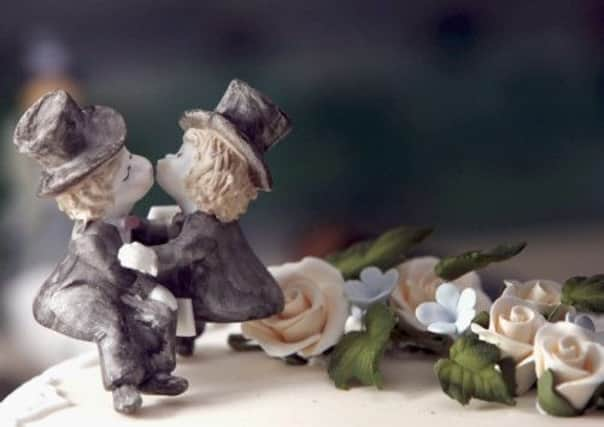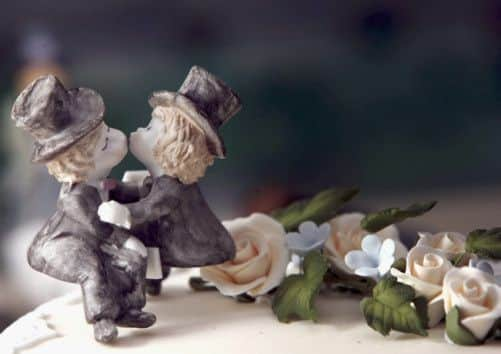MSPs told gay couples still discriminated against


Tim Hopkins, director of the Equality Network, said its research found that more than half of gay couples who enter a civil partnership complain that they are not treated the same as mixed-sex married couples.
MR Hopkins insisted that legalising same-sex marriage would “genuinely reduce stigma and discrimination”, as he gave evidence to Holyrood’s equal opportunities committee.
Advertisement
Hide AdAdvertisement
Hide AdThe committee is scrutinising Scottish Government proposals to give gay couples the right to marry after ministers published the Marriage and Civil Partnership (Scotland) Bill in June.


Mr Hopkins said that marriage is the “last big area in which the law still discriminates against LGBT (lesbian, gay, bisexual and transgender) people”.
He said: “This Bill is about love. Marriage is about love. If you speak to most married couples and ask them what their marriage is about, it’s about love, it’s about commitment to each other. If they have children, it’s about their family.”
Mr Hopkins added: “We did a survey of 103 people in civil partnerships and 58 per cent reported that they hadn’t received the same treatment as married couples.
“People have said to us, ‘it’s not a real marriage is it?’ We’ve heard of hospitals where people have been turned away as next of kin because hospitals have not understood what civil partnership is.
“One of the effects of introducing same-sex marriage will be to make that less likely to happen. I think it will reduce stigma and discrimination that people face in society.”
Colin Macfarlane, director of Stonewall Scotland, said that when civil partnerships were brought in, his organisation “hoped that those distinctions between gay people and straight people would be eroded”.
But he said: “Hard evidence shows that, sadly, since 2005 when civil partnerships were introduced, that has not been the case.
Advertisement
Hide AdAdvertisement
Hide Ad“What this Bill for us does is make gay people equal in the eyes of the law.”
John Deighan, parliamentary officer of the Catholic Bishops’ Conference of Scotland, said: “There are substantial protections around the celebration of a ceremony of a marriage.
“The broader issue is that there is a fundamental philosophical clash of opinions here. There is a view that marriage is just a loving relationship between any two people who have committed themselves to each other.
“Then there is the traditional view that marriage actually centres around the fact that we create an environment to ensure children actually have parents.
“We don’t change the whole of society because people might feel upset that their relationship isn’t being given a particular badge by the state. It’s not about badges, it is about the practical effect on children.”
However, Dr. Salah Beltagui of the Muslim Council of Scotland, speaking at the same committee, said that legalising same sex marriage would be “dangerous for society.”
He said: “Going through the Bill itself, you have a list of people who are too close to marry because of their relationships.
“That list, for us, included same-sex (couples). With that list, if you keep changing it, that is going to be dangerous for society ... that could lead to incest.”
Advertisement
Hide AdAdvertisement
Hide AdThe legislation makes provision for religious bodies and faiths to “opt in”, effectively making it the default position that they are not required to offer ceremonies to same-sex couples.
However, Kieran Turner, public policy officer for Scotland at Evangelical Alliance Scotland, raised concerns about the “robustness” of protections for religious bodies, and how the legislation may be interpreted in the courts.
He said: “Will it be the case at some point that a case will come to try and force the church to marry a couple that they don’t feel that they can marry? We have started to see moves towards that in England already, and our concern would be that that would come in Scotland, and it could go all the way to the European court where that protection is struck down.”